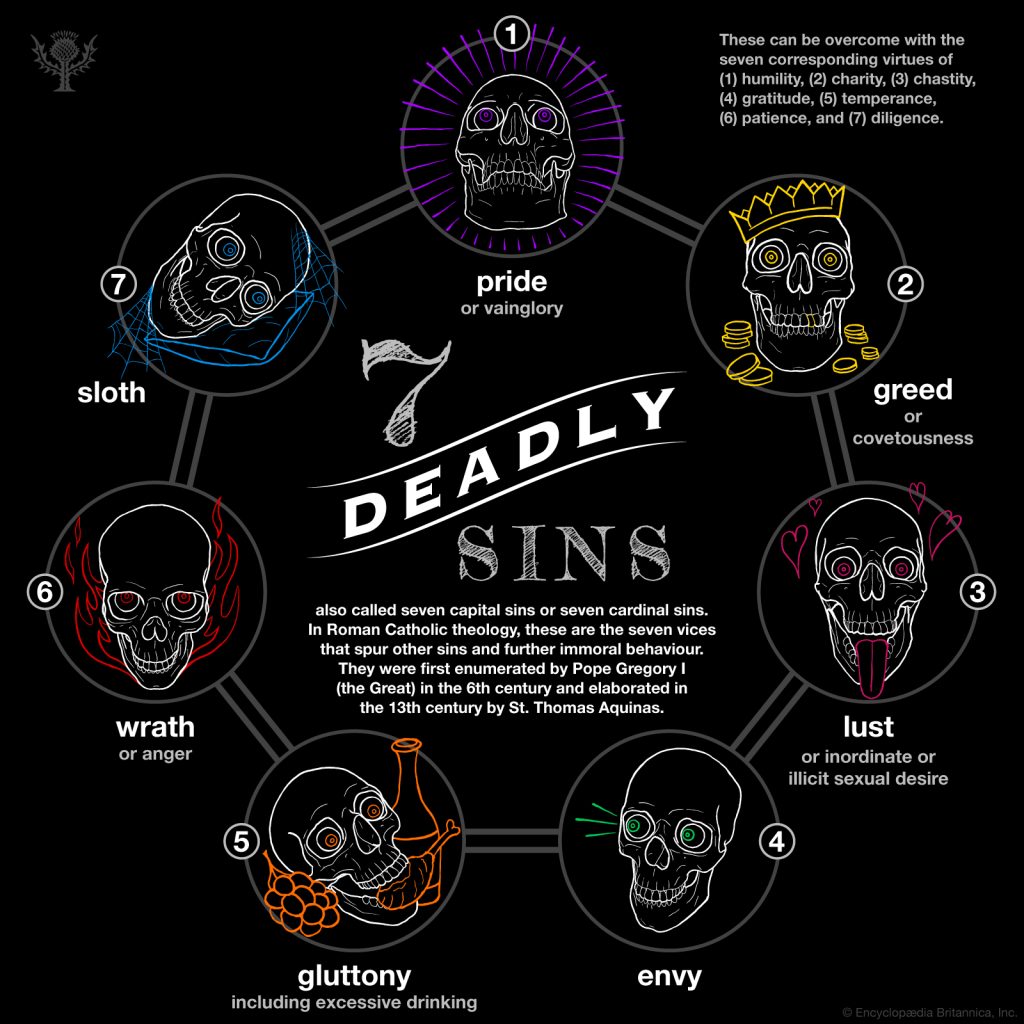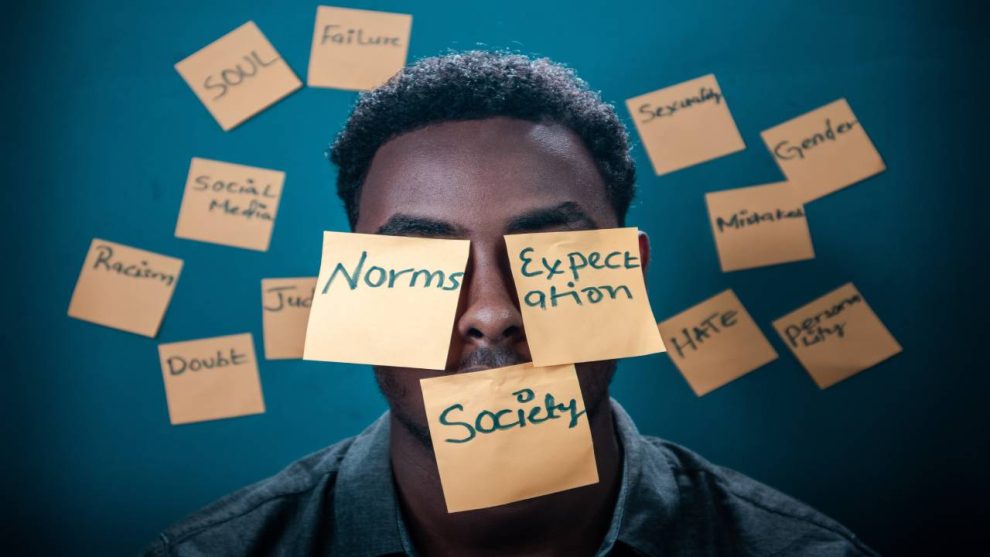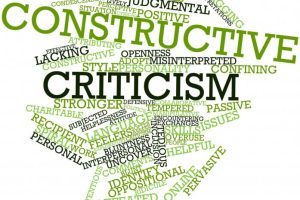The seven deadly sins, or the seven capital sins in Roman Catholic theology, are well-known among the general public. The given seven-character flaws lead to more serious sins and unethical activity. It is like a penchant toward evil and separation from God.
The bible’s seven deadly sins generally sum up humanity’s flaws: pride, envy, gluttony, lust, anger, greed, and sloth.

However, as we enter a new period of reality, the route has shifted. The seven deadly sins of modern society are as follows:
Casualness
Every new generation brings with it a unique view of the world. When our ancestors went hunting for food merely to survive another day, life had a different meaning. Nowadays, people have so little to worry about, and they expect to be given everything from food to commodities. Without knowing the struggle that went into the development of everything, people now take things for granted.
As a result, we’ve begun to take life a bit less seriously. It is useful to an individual’s mental well-being in some ways, but it is not appropriate for all conditions. One of the major issues facing today’s youngsters is not knowing when to act maturely.
Every major decision we make affects our future. Our careless habit of taking things for granted, on the other hand, has left us unsure of who we are and what we aspire to be. So, we seek commitment without confrontation to escape the consequences. And this is one modern society sin.

Anonymity
There are about 7 billion people in our world, each with its own separate identity. Our facial shape, personal identity, personality, voice, individuals we know, and so on can all help us identify it. We act in ways that reflect who we are to the rest of the world, not who we are to ourselves. Your self-esteem, respect, and reputation are all based on how you act and what you do.
In the late 1970s and early 1980s, computer pioneers worked on something they felt would forever change the world. However, I doubt they were aware of the consequences for humanity. The strangest thing happened as the internet grew in popularity over the years. As a result, people’s privacy has increased and decreased. On forums, you can pretend to be anyone or nothing at all, but the software we use keeps track of our whereabouts at all times. Thus, we give up privacy to obtain more.
The greatest drawback of internet anonymity was that we no longer had to pretend to be pleasant. In real life, if you’re a jerk to the people around you, you’ll have to deal with the people one day. However, on the internet, where the entire globe is linked, you can be cruel to anyone without fear of penalties.

It grants that authority to you, and people have no issues about abusing it. People are now engaging in real-life interactions to divert their attention from the World Wide Web’s ever-feeding network. The internet’s artificial reality, which was built to treat people avoid facing reality, now serves an ironic purpose.
Impulsivity
Desires exist in humans. We covet things that can be materialistic, emotional, or as simple as telling your middle school bully to knock it off. It would be the end of the world as we know it if everyone on the earth chooses to do anything they want.
The strange phenomenon is that to balance the ups and downs of life, we either control our emotions, hide the facts, or think things out. Alternatively, we can do whatever comes to mind without regard for the results. Both sides of this arc have their own set of pros and cons. There is no right or wrong way to make decisions, yet impulsivity can lead to some major blunders in life. It’s a gamble to do what you want because impulsiveness can either help or hurt you.
In most cases, what feels like the right thing to do is the right thing to do; generally, it is. However, nobody should make every decision based on their heart or gut feeling rather than the consequences. This way, even if the decision you made wasn’t the best, you’ll be aware of what’s coming next and can behave accordingly.
Avoidance
In a decade, the current generation encounters more people than people a century ago did in their whole lives. Thanks to the internet, you don’t have to leave your bed to meet hundreds of new individuals and create fifty new friends. It’s that simple. Ignoring or evading the existence of a person has never been simpler. You clearly put them on your ignore list or stroll away from your phone. Doing something identical in real life isn’t impossible, but it isn’t easy.

Avoidance has become a widely accepted method of dealing with difficult situations. People don’t want to be cruel in real life, but they feel unstoppable online. It’s not simply people who we like to avoid. We tend to shun anything that gets in the way of our ideal way of life. From overdue college projects to a potential love partner, we ignore it if it’s in the way.
Phoniness
Even though we were all born equal, not everyone turns out to be decent. The way we were raised and treated has a significant impact on our character and personality. Attempting to live a genuine life may not be feasible for everyone. As a result, we tend to look for ways to benefit ourselves by harming or exploiting others. Not everyone unfortunate is a liar. People who have nothing to lose, on the other hand, tend to be more honest than those who have everything.

People should not be held responsible for this action because we are too busy living two lives. One is in social media, where you have no defects and a platform where others can hear you, and the other is in real life when your flaws are obvious, and you go unseen. It must be difficult for them to cope with something like that, so they become sinful to make themselves happy.
Woke-ism
The term “woke” describes an awareness of racial prejudice and discrimination. It has become fashionable to seem socially aware rather than engage with the systemic challenges surrounding us.
Anyone who brings up the topic of identity or race is praised as someone concerned about social justice. That is not the case, however. Acknowledging this fact and not dismissing others is a shared obligation that we all bear.

The border dividing accomplice and appropriation are just too fuzzy these days, thanks in part to woke culture. It’s difficult to tell who is carrying their convictions and making the work and who is just laying on a show. However, we have reached a stage when everyone should be considering these ideas. Everyone should try to adapt and enlighten themselves through cultural studies classes and teach-ins.
Derealization
The seventh sin of modern society is Derealization. And what exactly does the term imply? Well, it’s the sensation that one’s surroundings aren’t genuine, particularly as a symptom of mental illness.
People nowadays are disconnected from reality, as we can observe. And this is normal in the sense that more than half of all people will experience a sensation of separation from reality at some point during their lives. But the problem is that they can’t commit to the truth, can’t take things seriously, and have erroneous beliefs about everything.
Even the attention span is low, with the mind roaming aimlessly. People daydream about possibilities rather than working to make them a reality.
More: Decision Making Habits You Should Adopt For A Successful Life









